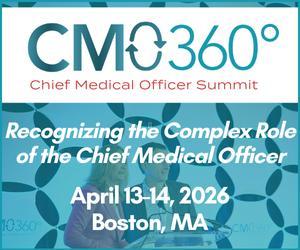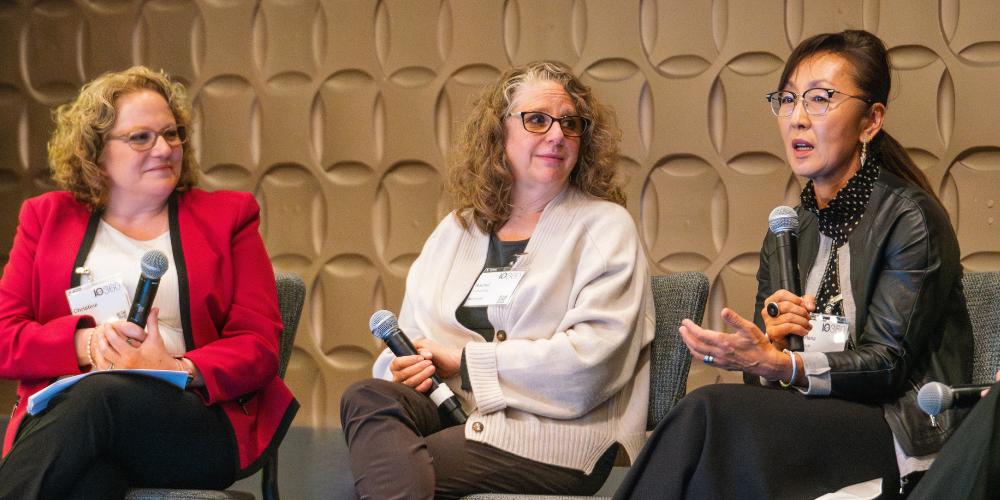Leading Immune Checkpoint Therapy Trials in NSCLC, at MD Anderson
Tina Cascone, MD, PhD, speaks about identifying mechanisms of response and resistance to immunotherapies and developing novel therapeutic strategies in non-small cell lung cancer. She is an assistant professor in the Department of Thoracic, Head and Neck Medical Oncology at the University of Texas MD Anderson Cancer Center in Houston, TX.

Can you tell us about the work you are currently leading?
As an assistant professor in the Department of Thoracic/Head and Neck Medical Oncology at The University of Texas MD Anderson Cancer Center, I am leading clinical trials investigating perioperative immune checkpoint therapies in patients with early stage non-small cell lung cancer who are candidates for surgery with the goal to prime the immune system when the intact tumor is still in place, enhance pathological tumor regression at surgery and minimize the risk of disease relapse
My laboratory has established preclinical non-small lung cancer mouse models to evaluate different combinations of immune checkpoint inhibitors and study the mechanisms of resistance to immune-based therapies. Our goal is to use the preclinical findings to inform new clinical trials that investigate novel targets and biomarkers of clinical benefit.
What made you passionate about entering the field?
As a physician scientist, the results of the research that I do can have a direct impact on the patients that I see and care for in my clinic, and that is extremely rewarding. I have always been excited by the process of discovery and I was fortunate to participate in cancer research when I was in medical school.
Those initial studies were focused on examining cancer cell responses to different targeted therapies and I knew at that time that I wanted to pursue medical oncology as my profession. During my postdoctoral studies, my passion for cancer science and medical oncology grew tremendously and I focused my research efforts on studying mechanisms of lung cancer resistance to anti-angiogenic therapy.
During my tenure as medical oncology fellow and instructor at MD Anderson, I decided to concentrate my research work on understanding how lung cancers become resistant to immunotherapy. Unfortunately, many patients with lung cancer do not respond to immunotherapy and my laboratory is studying the molecular basis of this immune resistance in order to develop more effective treatment strategies for our patients.
“This team science-driven research approach will allow us to expedite the investigation of more rational and effective combinatorial treatment strategies in the next generation of clinical trials."
What has surprised you about working in immuno-oncology?
Perhaps most surprising has been the speed at which advances are being made for different types of cancer with the use of immunotherapy. This is certainly the case for non-small cell lung cancer. Immune checkpoint therapy has transformed the treatment landscape for early-stage resectable, unresectable locally advanced and metastatic non-small cell lung cancers.
We are trying to sustain the momentum by working in partnership with teams of physicians, researchers and trainees from several institutions to perform groundbreaking translation research work. This team science-driven research approach will allow us to expedite the investigation of more rational and effective combinatorial treatment strategies in the next generation of clinical trials.
What are your thoughts on how to encourage young women to enter STEM?
One of the ways that we are trying to do this at MD Anderson is by going out into the community to local high schools and speaking to students about our research and the personal satisfaction one can receive through a career in science and medicine.
We have also established a research program for rotating college and medical students who are considering a career in biomedical science, including those who are under-represented in science and medicine. This program provides trainees with a hands-on experience in research laboratories and also exposes them to patient care. We hope that connecting female students with strong women role models and mentors can motivate young women to pursue a STEM career.
For more information on IO360º Summit, click here.









